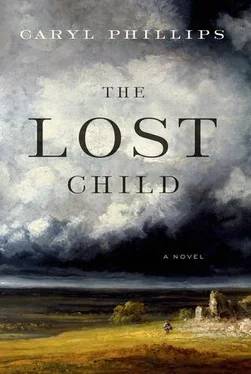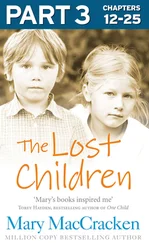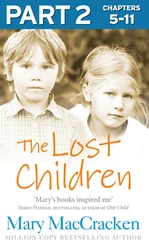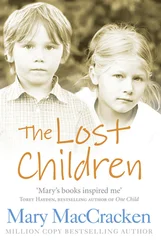Around three o’clock in the afternoon was when the first of the men liked to wander into the library. By four o’clock all three of them had arranged themselves around the central reading table, and they busily flicked through the daily newspapers whose spines were wooden sticks. It took me only a day or so to realize that their preferred seating matched exactly where the large clunky radiators were located. It was February now, and the weather was chilly, and these three men liked to spend their afternoons idling in the warmth before I imagined they took themselves back to the pub for the evening. I was pretty sure that their mornings would most likely have been wasted in the bookie’s, before a lunchtime packet of crisps and a pint of beer and then a slow trundle around to the branch library, where they would make themselves at home for a few afternoon hours. Not that I cared, but my new boss clearly did, for I caught the woman glaring at the men and making little attempt to disguise her contempt for them.
By the time the large clock above the door — with roman numerals decorating its face as opposed to numbers — showed five o’clock, I’d have already finished my reshelving, collected my handbag from its peg in the seedy staff room, and be heading out, having nodded a sociable good-night to my boss. But the woman never said a dicky bird in reply, nor did she raise her head up from the checkout desk to look me in the eyes. Resentment, I assumed, at the fact that the local council had placed me in her library as though I were some kind of dodgy gift, and she’d therefore not been given the opportunity to do a conventional interview. Besides me there was only Miss Williamson, who had officially retired five years earlier but who had agreed to help out from time to time, for she was both familiar with the place and had little else to do. However, my sour-faced boss need not have worried herself, for I’d already decided that I wasn’t staying. I’d made up my mind on the very first day that this depressing branch library wasn’t going to be in my future, and on the Friday afternoon I handed in my cards.
I pour the whisky into a cup, but I know that it’s not going to agree with me. However, I need something to help me sleep. When I wake up, it’s bright in the room, and once again I’ve no idea where I am or how I got here. I remember losing Tommy, and the hospital, and then Bridlington, and Christmas Eve at the Mecca, and then trying to see Ben, and Denise getting rid of me, and the useless branch library, and catching the train to London. I remember the room at the top of the house, and the American man in his pinny who’d run away from fighting in the war. I dash into the bathroom, and I’m sick all over the place. I’m feeling too ill to do anything but a little wiping off with some toilet paper and then a quick flush. I drag myself back to the settee and lie down and close my eyes, but my head’s still pounding, so I sit up and try and steady my nerves. I suspect that it’s warm outside, for the daylight bleeding around the corners of the curtains is getting in my eyes. I don’t have a bathing costume, but I reckon if I take off my shoes and strip down to my bra and pants, then I’ll still be respectable. I stand up and hide the bottle of whisky back in the cupboard, and I open the last can of beer and drink it quickly and leave the empty tin on the kitchen counter.
Don’t you have any shame? When I open my eyes, I can see the man from next door staring at me, but I’m not interfering with him. I’m sitting on the small step by the French door minding my own business, and I ask him why he’s looking at me. Now he’s really got his mad up, and he’s shouting and calling me indecent, and why don’t I take a hint and clear off like the other slags? That’s what the man at the Mecca Ballroom called me on Christmas Eve when I wouldn’t let him take me home. You’re just a sorry old slag, he said, and I threw a glass of beer at him, and he said, You’ve bloody gone and done it now. I laughed at him, and then the manager came and asked me to leave. But I’m not going to give this man the satisfaction, so I just stare at him as though he’s talking a foreign language, and when he’s finished ranting, I tell him, all nice and quiet, Don’t talk to me. I can see it on his face that he’s still angry, but he gives me a dirty look, then turns and leaves, and I hear him slam his back door as he goes inside. I’m enjoying the sunshine, and I have a right to be here because my friend said I could stay as long as I wanted and he gave me a key.
I look at myself in the small bathroom mirror and set about putting on some makeup. I place the cup of whisky on the edge of the sink and make a mental note to be careful that I don’t knock it off and onto the floor. My mother gave me my first lesson in how to apply makeup when my father was away on a school trip to the Lake District. However, she warned me that I must never let him see me with mascara or lipstick on, for he’d take a wet flannel to me. It still makes me livid that in his letter he didn’t even tell me where she was buried, which would have been the caring thing to do, so at least I could go there and say a proper goodbye. In the morning I’ll make my way to Hyde Park, and at least I’ll look presentable, so long as I don’t smudge this mascara when I finally drop off to sleep. Tomorrow I’ll find an empty bench to sit on, and then I’ll devise a plan of action that will take me through the summer until it’s time to go back to university. I can admit it to myself now: waiting around in this flat for my actor friend to help me out has been a waste of time. I’ve made a mistake, but when I wake up, I’m going to clear off out of here and start to put things right.
In the morning the front doorbell wakes me up, but I decide not to get up and see who it is, for I have an ominous feeling. However, the person won’t stop pushing the bell, and then I hear loud knocking on the door to my flat, and I wonder if there’s a fire or something because the walloping won’t stop. When I open up, I see a policeman in front of me with his hat under his arm like it’s a rugby ball, and out of the corner of my eye I catch a glimpse of the old lady as she tries to disappear up the stairs before I can see her. The policeman tells me that I have to come with him to the station, for they want to talk to me about something. I tell the man that I have to get dressed, so he says he’ll come inside and wait for me while I do so. And then I see him lift his hand to his face as though he’d suddenly smelt something rank. I’ll wait out here, he says, but leave the door open a little. So he’s standing outside of the flat, and it doesn’t take me long to put on my slacks and jumper and smooth out my hair, but before I even have time to brush my teeth, he’s at it again, banging on the door and telling me to hurry up as he doesn’t have all day. I’m hoping that the officer has a car outside to take us to the station, for I really don’t want to walk down the street with a policeman so everyone can stare at me.
I seem to have been waiting forever in this big wood-panelled room with people sitting, then standing up, then sitting back down again. Everybody’s taking turns to speak, but even though their mouths are moving, I can’t hear any sound, and it’s almost as though I’m underwater. Three wise monkeys are sitting behind a bench, and they keep nodding and looking over at me, then listening to whoever is talking, and suddenly my ears pop and I can now hear the policeman who was knocking on my door talking about how I wouldn’t come out straightaway, and how I put up a bit of a struggle and tried to lock myself in the bathroom. I want to laugh because it seems funny that he should be making all of this up and fooling them, but I can see by the way they are looking at me that this is serious and his lies are making me look bad.
Читать дальше












